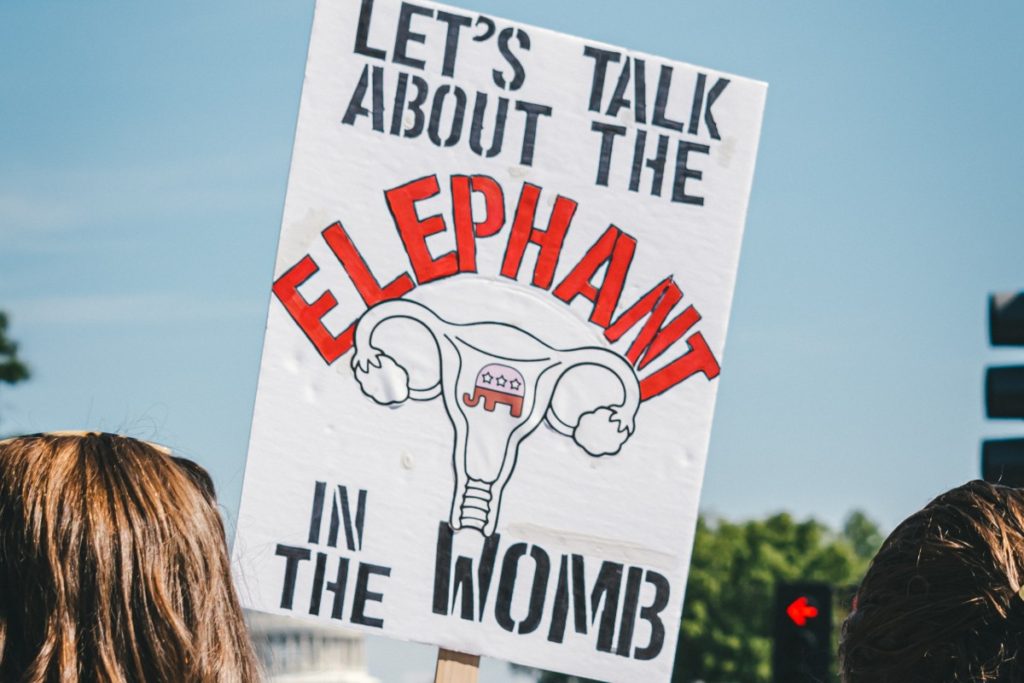
By Andy Brack (updated 9 a.m., May 27 with court order) | Abortion politics moved at lightning speed this week, first with a six-week ban approved by the legislature Tuesday and signed into law Thursday. But when reproductive freedom advocates almost immediately filed a 167-page lawsuit challenging the ban, it took only a day before S.C. Circuit Judge Clifton Newman today issued a temporary order blocking the ban.
The ban was in effect for only about 24 hours before Newman hit the pause button to allow the state Supreme Court to review the new law — which is remarkably similar to a ban that temporarily went into effect last year before also being paused and later ruled unconstitutional based on the state’s explicit right to privacy.
According to the order: “The South Carolina Supreme Court should resolve the constitutional issues in this case as the court has ruled that a nearly identical law violated the right to privacy. The status quo should be preserved while the South Carolina Supreme Court resolves this case in as expeditious manner as possible.”
So for now, it’s legal and safe for pregnant women in South Carolina to choose whether to have a traditional abortion of up to 22 weeks.
“Today the court has granted our patients a welcome reprieve from this dangerous abortion ban,” said Jenny Black, president and CEO of Planned Parenthood South Atlantic. It, the Greenville Women’s Center and two physician plaintiffs sought a temporary stay to the six-week ban just 40 minutes after it was signed into law Thursday.
“Our doors remain open and we are here to provide compassionate and judgment-free health care to all South Carolinians. While we have a long fight ahead, we will not stop until our patients are again free to make their own decisions about their bodies and futures.”
South Carolina lawmakers spent much of the 2023 legislative session — they still haven’t passed a budget for 2023-24 — arguing over abortion. The S.C. House pushed a near-total abortion ban, which was thwarted by the state Senate. Instead, it approved a so-called “fetal heartbeat” bill to ban most abortions after an embryo’s cardiac activity could be detected in the womb. At that time, most women don’t know they’re pregnant.
But the House insisted on the near-total ban and the issue ground to a halt. Until the final week of the session. That’s when House Republicans caved to the Senate’s version, which eventually made it to the governor this week.
McMaster celebrated the signing, as reflected in this statement, “This is a great day for life in South Carolina, but the fight is not over. We stand ready to defend this legislation against any challenges and are confident we will succeed. The right to life must be preserved, and we will do everything we can to protect it.”
But at 11:07 a.m. Thursday — less than 40 minutes after McMaster signed the ban into law — Planned Parenthood and three plaintiffs filed the 167-page lawsuit in state court seeking a temporary restraining order to block the new law “on the grounds that it violates South Carolinians’ constitutional rights to privacy, equal protection and substantive due process by banning abortion, providing inadequate protections for patients’ health, conditioning sexual assault survivors’ access to abortion on the disclosure of their personal information to law enforcement, violating the Medicaid Act, and improperly targeting Planned Parenthood through an unconstitutional bill of attainder.”
At the time, Black said South Carolina lawmakers “have once again trampled on our right to make private health care decisions, ignoring warnings from health care providers and precedent set by the state’s highest court just a few months ago. The decision of if, when and how to have a child is deeply personal, and politicians making that decision for anyone else is government overreach of the highest order.”
In other recent headlines:
![]() S.C. budget impasse could detail employee, teacher raises. A continued standoff threatens more than $1 billion in proposed additional spending, including planned raises for state employees and teachers.
S.C. budget impasse could detail employee, teacher raises. A continued standoff threatens more than $1 billion in proposed additional spending, including planned raises for state employees and teachers.
More than 20,000 died from COVID-19 in S.C. More than 20,000 residents died during the pandemic, according to state data. In the last week, less than 1,200 new cases of COVID-19 for the week that ended May 20, with 10 new deaths.
Scott kicks off presidential campaign in North Charleston. After months of speculation, U.S. Sen. Tim Scott, R-S.C., on Monday told a packed crowd at his hometown alma mater, Charleston Southern University, that he is running for president of the United States. He becomes the second South Carolinian running for the GOP nomination for president, joining former Gov. Nikki Haley, who announced earlier this year.
S.C. GOP re-elects chairman in close vote. State Republican reelected Drew McKissick on May 20 as party chairman for a fourth term after he was challenged by two hard-right candidates.
Feds indict Murdaugh on 20+ financial charges. Convicted murderer and former attorney Alex Murdaugh has been charged for the first time by federal prosecutors accusing him of more than 20 financial crimes, including 14 counts of money laundering, five counts of wire fraud, two counts of conspiring to commit fraud and one count of bank fraud.


